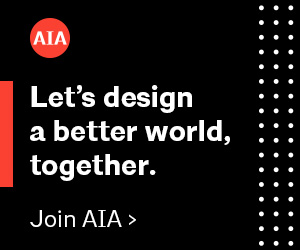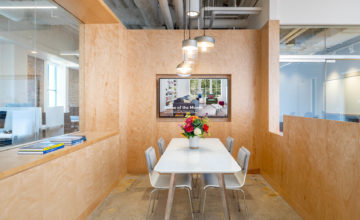Register now!
This program is the first in the Materials Matter series of five continuing education sessions. Click here to return to the full series overview.
Healthy Planet: Materials + the Environment
The status of the materials movement, the tools available, and perspectives from practice in preservation architecture
Session 1 kicks off the Materials Matter program with a candid overview of why materials matter for both environmental and human health. The session focuses on what impacts material substances can have on our environment and how we measure and track those impacts. It will introduce the primary methods used to assess the environmental impact of materials, and the ecosystem of tools available to help identify and prioritize environmentally sustainable materials.
Date and time
Wednesday, March 24, 2021
10:00 am to 3:00 pm – break from 12 to 1:00
Continuing education
4.0 HSW LU Hours
4.0 GBCI credits applied for
Learning objectives
- Describe the context of healthy materials through understanding the role materials play in human and environmental health.
- Summarize the ethical and business cases for paying increased attention to materials in the built environment.
- Describe how material substances impact the environment, what are different categories of impacts, and how we measure and track them.
- Identify common methods used to assess the environmental impacts of materials and describe opportunities and limitations of the methods.
- Explain life-cycle assessment and tools which use LCA to determine materials environmental impact.
Instructors
 Simona Fischer, AIA
Simona Fischer, AIA
Simona is a registered architect, sustainable design professional, and associate with MSR Design. Simona develops and tests processes to integrate sustainable design seamlessly into the workflow of architectural practice. A self-avowed materials nerd, her experience includes project management, Living Building Challenge documentation, and firmwide sustainable design implementation. Simona has presented at national conferences and lectures regularly at the University of Minnesota. She serves on the Healthy Building Network HomeFree Champions advisory group, which works to build momentum in healthier materials for affordable housing. She currently co-chairs the AIA Minnesota Committee on the Environment (COTE).
Rachelle Schoessler Lynn
Rachelle is director of workplace + regional design resilience leader at Gensler Minneapolis. With over 25 years of experience, she is a leader in resilient design and has been an advocate for innovative sustainability solutions for her entire career. Rachelle is one of the original authors of the Minnesota B3 Guidelines (Buildings, Benchmarks and Beyond) and a co-founder of the Minnesota USGBC chapter. While ASID National Chair, Rachelle furthered the case for sustainable design through policy, research initiatives, and writing and speaking engagements.Rachelle was awarded the LEED Fellow distinction in 2013 and is currently serving on the Council of Interior Design Accreditation Board of Directors. She is the immediate Past Chair for the national AIA Materials Knowledge Working Group that has developed the 2050 Material Pledge.
Bill Walsh
Bill is the founder and now serves as strategic advisor to the Healthy Building Network (HBN). Since 2000, HBN has been defining the leading edge of healthy building practices that increase transparency in the building products industry, reduce human exposures to chemicals in building materials, and create market incentives for healthier innovations in manufacturing. He has been a visiting professor in The New School at School of Design, is a fellow of the Lowell Center for Sustainable Production at UMass Lowell, and is a founding board member of the Health Product Declaration (HPD) Collaborative. He holds a J.D. from Northeastern University School of Law and an LL.M. in Public Interest Advocacy from Georgetown University.
Todd Grover, AIA
Todd is COO of MacDonald & Mack Architects. Todd’s interests include the preservation of the recent past, heightening the awareness and understanding of significant buildings that have not reached the fifty-year threshold. He is also invested in the intersection of sustainability and historic preservation. Todd’s honors include the AIA Minnesota Young Architect Award, Minneapolis Heritage Preservation Awards and Minnesota Preservation Awards, and is a recognized professional with the Association for Preservation Technology. Todd is also an Adjunct Assistant Professor at the University of Minnesota.Registration available soon.

Joiana Hooks
Joiana received her Master of Architecture from Hampton University and earned her Master of Science in Research Practices (MS-RP) at the University of Minnesota. Her architectural experience thus far has included her work as an Architectural Designer Student Researcher. Joiana’s current research interests stem from her ultimate concern for human and environmental health. As the integrity of each are comprised by factors of global waste production, landfill byproducts, and other consequences of materials such as plastics, she questions how a product’s application, life cycle and derivatives are influenced by its material composition.
Questions?
Contact Deanna Christiansen, Continuing Education Director
Click here to return to the full series overview.







